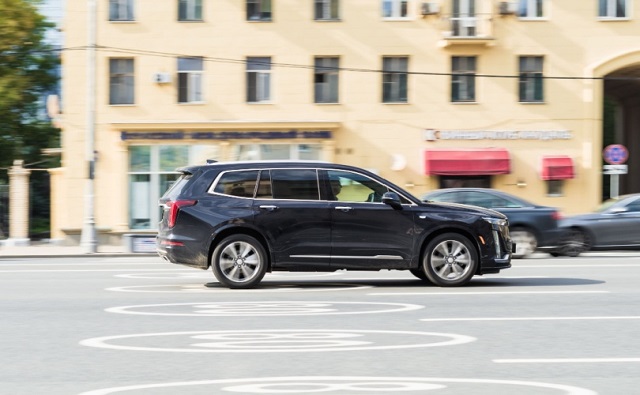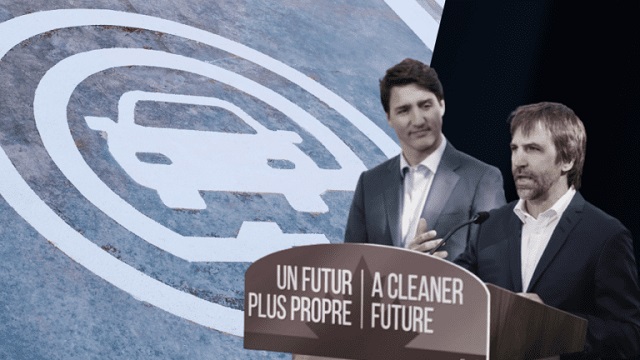Automotive
High-tech cars are secretly spying on drivers, resulting in insurance rejections: NYT report

From LifeSiteNews
Many Americans’ driving habits are monitored without their knowledge or consent, and their driving data is being used to make decisions about insurance coverage and rates.
A lawsuit accuses General Motors of spying on a Florida man’s driving habits via his 2021 Cadillac XT6, resulting in his rejection by seven auto insurance companies.
The man, Romeo Chicco, is also suing LexisNexis, the company that shared his data with the insurance companies.
The New York Times reported:
Modern cars have been called “smartphones with wheels,” because they are connected to the internet and packed with sensors and cameras. According to the complaint, an agent at Liberty Mutual told Mr. Chicco that he had been rejected because of information in his “LexisNexis report.” LexisNexis Risk Solutions, a data broker, has traditionally kept tabs for insurers on drivers’ moving violations, prior insurance coverage and accidents.
When Mr. Chicco requested his LexisNexis file, it contained details about 258 trips he had taken in his Cadillac over the past six months. His file included the distance he had driven, when the trips started and ended, and an accounting of any speeding and hard braking or accelerating. The data had been provided by General Motors — the manufacturer of his Cadillac.
Chicco had downloaded the MyCadillac app, and “was eventually told that his data had been sent via OnStar — G.M.’s connected services company, which is also named in the suit — and that he had enrolled in OnStar’s Smart Driver program, a feature for getting driver feedback and digital badges for good driving.”
Another New York Times report explored the extent to which car manufacturers and insurance companies are able to access data about drivers: a man whose insurance rates increased by 21 percent learned that LexisNexis had “more than 130 pages detailing each time he or his wife had driven the [Chevrolet] Bolt over the previous six months. It included the dates of 640 trips, their start and end times, the distance driven and an accounting of any speeding, hard braking or sharp accelerations. The only thing it didn’t have is where they had driven the car.
As cars become increasingly high-tech, freedom and civil liberties advocates like Republican U.S. Rep. Thomas Massie of Kentucky have warned that such features may become weaponized. For example, a 2021 federal law mandates that by 2026 new cars have a “kill switch” by which they be disabled from afar – supposedly an anti-drunk driving measure. As LifeSiteNews has reported, manufacturers must put a system in cars that can “passively monitor the performance of a driver of a motor vehicle to accurately identity whether that driver may be impaired” and can stop or limit “motor vehicle operation” if “impairment is detected.”
Automotive
Supreme Court Delivers Blow To California EV Mandates


From the Daily Caller News Foundation
“The Supreme Court put to rest any question about whether fuel manufacturers have a right to challenge unlawful electric vehicle mandates”
The Supreme Court sided Friday with oil companies seeking to challenge California’s electric vehicle regulations.
In a 7-2 ruling, the court allowed energy producers to continue their lawsuit challenging the Environmental Protection Agency’s decision to approve California regulations that require manufacturing more electric vehicles.
“The government generally may not target a business or industry through stringent and allegedly unlawful regulation, and then evade the resulting lawsuits by claiming that the targets of its regulation should be locked out of court as unaffected bystanders,” Justice Brett Kavanaugh wrote in the majority opinion. “In light of this Court’s precedents and the evidence before the Court of Appeals, the fuel producers established Article III standing to challenge EPA’s approval of the California regulations.”
Kavanaugh noted that “EPA has repeatedly altered its legal position on whether the Clean Air Act authorizes California regulations targeting greenhouse-gas emissions from new motor vehicles” between Presidential administrations.
“This case involves California’s 2012 request for EPA approval of new California regulations,” he wrote. “As relevant here, those regulations generally require automakers (i) to limit average greenhouse-gas emissions across their fleets of new motor vehicles sold in the State and (ii) to manufacture a certain percentage of electric vehicles as part of their vehicle fleets.”
The D.C. Circuit Court of Appeals previously rejected the challenge, finding the producers lacked standing to sue.
“The Supreme Court put to rest any question about whether fuel manufacturers have a right to challenge unlawful electric vehicle mandates,” American Fuel & Petrochemical Manufacturers (AFPM) President and CEO Chet Thompson said in a statement.
“California’s EV mandates are unlawful and bad for our country,” he said. “Congress did not give California special authority to regulate greenhouse gases, mandate electric vehicles or ban new gas car sales—all of which the state has attempted to do through its intentional misreading of statute.”
Automotive
Opposition Conservatives fail in attempt to “Pull the Plug” on Carney’s Electric Vehicle Mandate

From Conservative Party Communications
After a Lost Liberal Decade of rising costs and slow growth, Mark Carney wants you to think his government has moved on from Justin Trudeau’s failed policies.
Unfortunately for Canadians, Carney has no interest in scrapping one of his predecessor’s most reckless and costly ideas: a zero-emissions vehicle (ZEV) mandate starting next year that will ultimately ban Canadians from buying gas-powered cars by 2035.
As the required percentage of ZEV sales increases each year, the government wants to force manufacturers and importers to buy costly credits of up to $20,000 for every EV they are short of the Liberals’ quota – a huge expense that will ultimately be passed on to, and paid by Canadian consumers.
That’s why Conservatives have introduced a motion to end this harmful scheme, ensuring Canadians can continue to buy the kind of car they need at a price they can afford.
EVs are great for many families, who should always be free to purchase the vehicle of their choice. But for many Canadians – who live in cold environments or travel long distances – they can be practically useless, especially without the infrastructure to power them.
One government report estimated that changes to Canadian infrastructure required to support a transition to ZEVs could cost up to $300 billion by 2040. On top of the costs already imposed on manufacturers and buyers, this policy will require billions in new tax dollars and government debt.
No wonder one 2024 survey found two thirds of Canadians find the 2035 target is unrealistic.
As unjust tariffs threaten an automotive sector which contributes billions to our GDP, the Liberals continue to put their elitist, top-down ideology ahead of the livelihoods of hundreds of thousands of proud Canadian workers.
While Carney talks about change, Conservatives are here to deliver. That’s why we’re fighting to repeal the ZEV mandate, scrap the industrial carbon tax and cancel Liberal fuel standards. We trust Canadians – not Ottawa’s Liberal elite – to make the best decisions for themselves and their families.
It’s time to put Canadians back in the driver’s seat.
-

 Daily Caller1 day ago
Daily Caller1 day agoUnanimous Supreme Court Ruling Inspires Hope For Future Energy Project Permitting
-

 Alberta2 days ago
Alberta2 days agoUnified message for Ottawa: Premier Danielle Smith and Premier Scott Moe call for change to federal policies
-

 espionage1 day ago
espionage1 day agoFBI Buried ‘Warning’ Intel on CCP Plot to Elect Biden Using TikTok, Fake IDs, CCP Sympathizers and PRC Students—Grassley Probes Withdrawal
-

 Agriculture1 day ago
Agriculture1 day agoUnstung Heroes: Canada’s Honey Bees are not Disappearing – They’re Thriving
-

 espionage1 day ago
espionage1 day agoFrom Sidewinder to P.E.I.: Are Canada’s Political Elites Benefiting from Beijing’s Real Estate Reach?
-

 International2 days ago
International2 days agoJudiciary explores accountability options over Biden decline ‘coverup’
-

 Economy2 days ago
Economy2 days agoOttawa’s muddy energy policy leaves more questions than answers
-

 Energy1 day ago
Energy1 day agoWho put the energy illiterate in charge?


